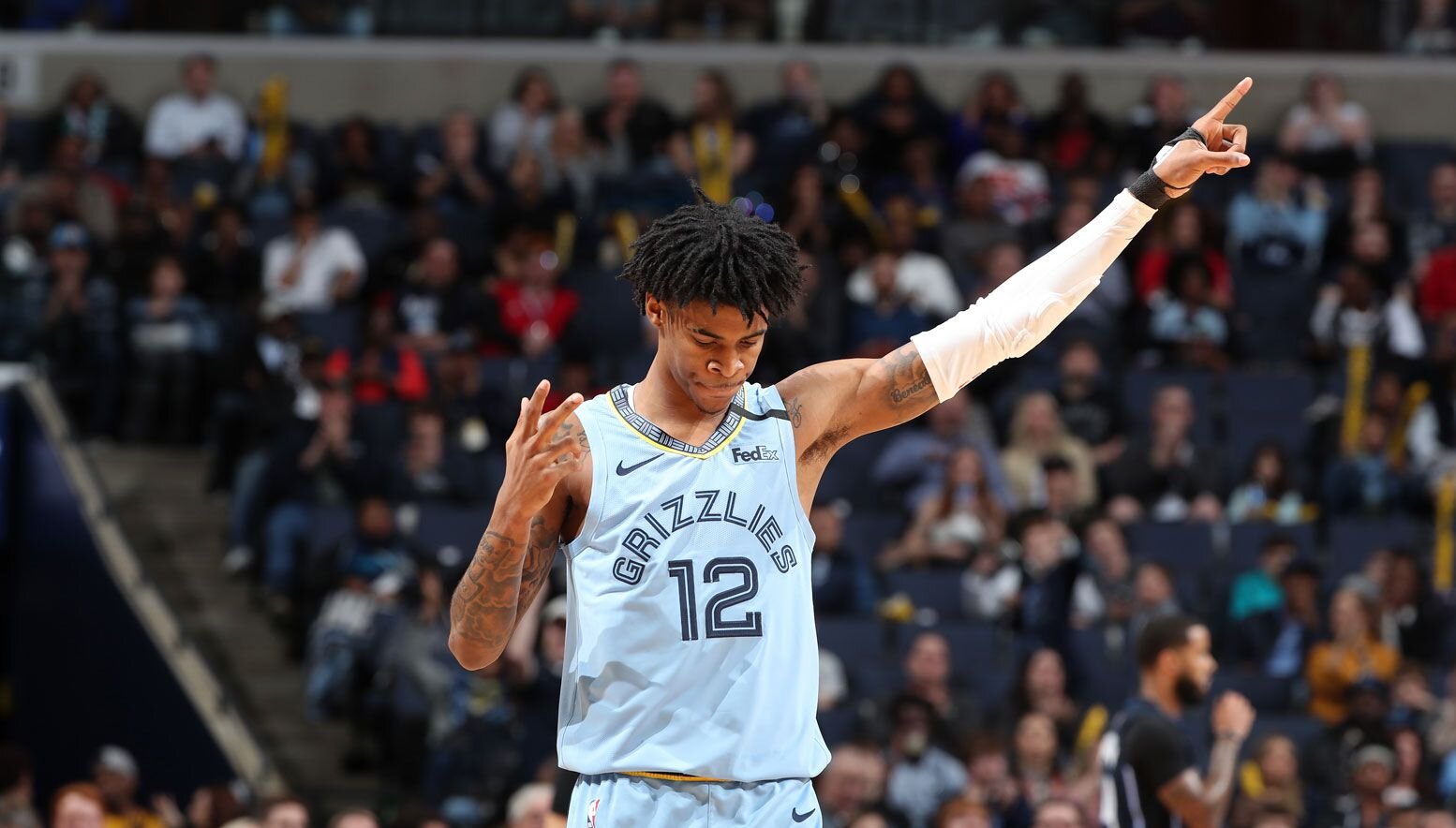The NBA has been on hiatus for nearly two months as league players, team officials and fans continue to cope with the global Coronavirus health crisis.
But for the Grizzlies and the league’s 29 other teams, the business and spirit of the game forge ahead as franchises make an impact in their communities during these challenging times. When the season was suspended March 11, Memphis was positioned to make the playoffs for the first time in three years as one of the NBA’s youngest and most rapidly improving teams.
And at the time, point guard Ja Morant was the consensus frontrunner for NBA Rookie of the Year after garnering Western Conference rookie of the month honors three consecutive times.
The second overall pick in last June’s NBA Draft, Morant leads all rookies in points and assists and is one of the top clutch scorers in the league. He’s a cornerstone on a Grizzlies team also anchored by young stars in Jaren Jackson Jr., Brandon Clarke and Justise Winslow. So whenever the season resumes, count on the Grizzlies to be ready.
Meanwhile, the organization continues to prioritize the health, safety and security of the region it calls home. Grind City Media uses this space each week to ‘Check In’ with the Grizzlies, their biggest fans and the community as they endure this hiatus together.
This week’s ‘Check In’ is with Morant, who was a surprise participant on a recent video conference call with local middle school scholars and volunteers with the Grizzlies TEAM Mentor Program. To learn more about becoming a mentor, click here and join an info session.
Before the Grizzlies TEAM Mentor Program held its end-of-school-year virtual sessions this week, Morant spoke about his childhood growing up in South Carolina and how he learned from mentors along the way to becoming one of the NBA’s brightest young stars.
TEAM Mentor Program: What were you like as a 7th or 8th grader?
Morant: Well, I was a short guy. I was probably about 5-4 or 5-5 at that time. My jersey and stuff was almost bigger than me. But my life wasn’t hard. My parents always found a way to give me and my sister what we wanted and what they felt we needed. Basketball is not just what I do now. I’ve been playing it since I was about four or five years old. Middle school is right around the time when it starts to pick up, because soon you’ll be playing in high school. In middle school, I was just trying to get better before I got to high school.
TEAM Mentor Program: Did you have a mentor in middle school?
Morant: In my schools, they always had guidance counselors. Some people don’t use them, but I definitely did. Just going through rough parts, not believing in yourself as much, it’s always good to have somebody there to talk about it with instead of holding it in and letting things build up. Outside of that, I would go to them to continue to check on my grades and stuff. My parents and coach used to tell me that grades come first before anything. So I would go there to check on my grades to make sure I was doing good in the classroom. So it was definitely a plus for me to have a mentor around that age.
TEAM Mentor Program: What’s one obstacle you faced? Can you share how you overcame it?
Morant: Being under recruited was probably my biggest obstacle I faced. I just continued to push myself to try to get better. My parents used to try to tell me the right things to keep me up. I always told myself that if you don’t believe in yourself, who will? That was always a big part in it. It started with me, just telling myself that I’m good enough to play wherever I wanted to play. The thing my dad always said was I was churning to go and my mom would always say that I’m beneath no one. So those are things I still live by to this day to get me where I am now.
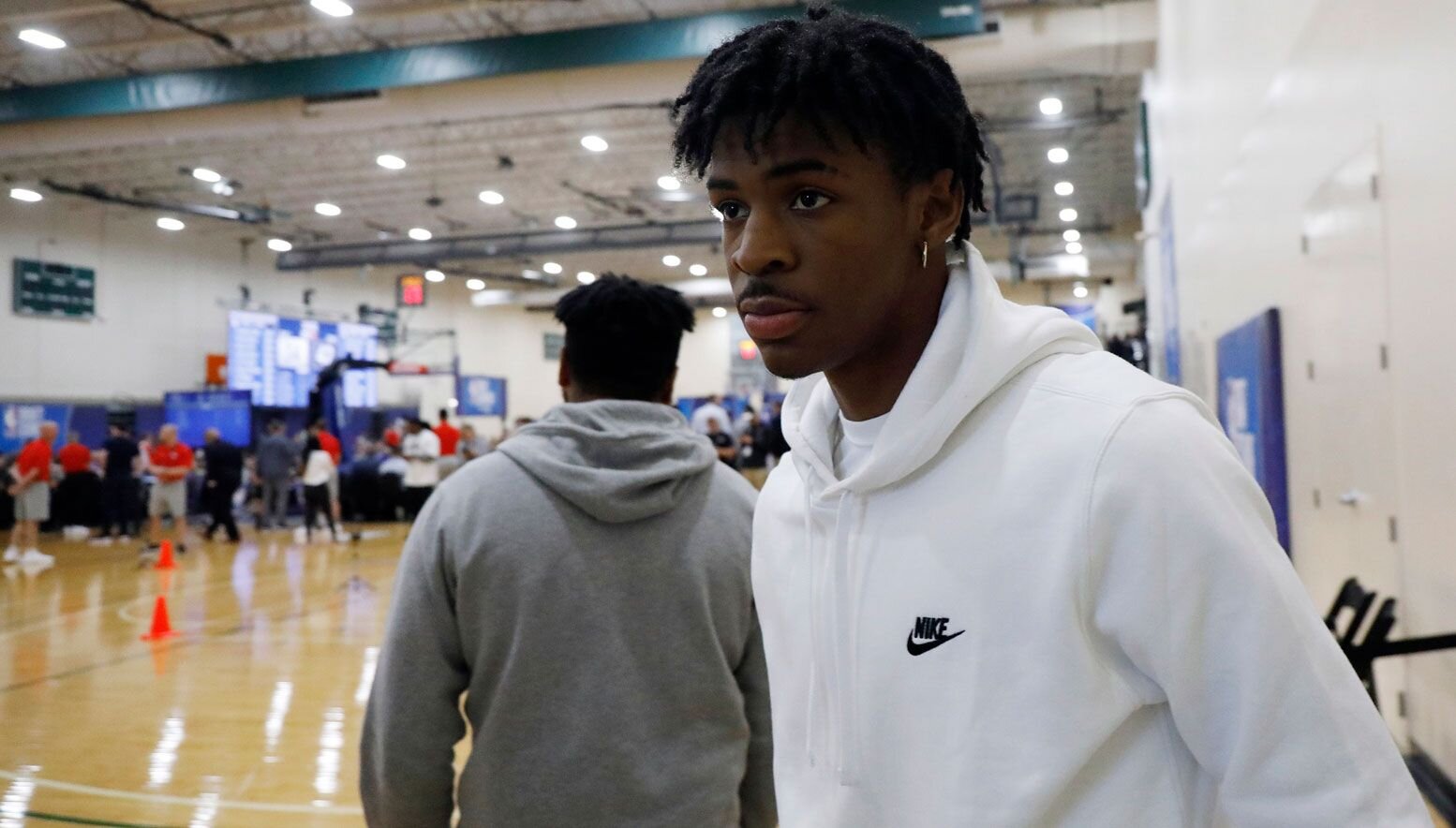
TEAM Mentor Program: What does community means to you?
Morant: It definitely means a lot. Where I’m from, it’s not a big city at all. It’s very small. We didn’t have a lot of people and we didn’t have a lot of access to things around, like a library or a gym. My dad designed a full-court basketball court for me so we could have access to that for workouts. And after that, we just started having a lot of people over in our backyard, just opening it up to people where I’m from. And we still do that to this day. We’ll still have people call and ask could they use the basketball court. It’s still there.
TEAM Mentor Program: You’ve done a lot to give back to communities in South Carolina, Murray State and now in Memphis. What drives you to stay committed to giving back?
Morant: I’m a big family guy. I love when people show me love so I show it back any way I can. Since I got to Memphis, everyone brought me in as family. So anything like that I can do to put a smile on a kid’s face and help them out in any way, I always do. I know they’re grateful for anything you donate their way and give back. I did the same back home in South Carolina with my high school, donating shoes and stuff. I try to help any way I can and be a great role model.
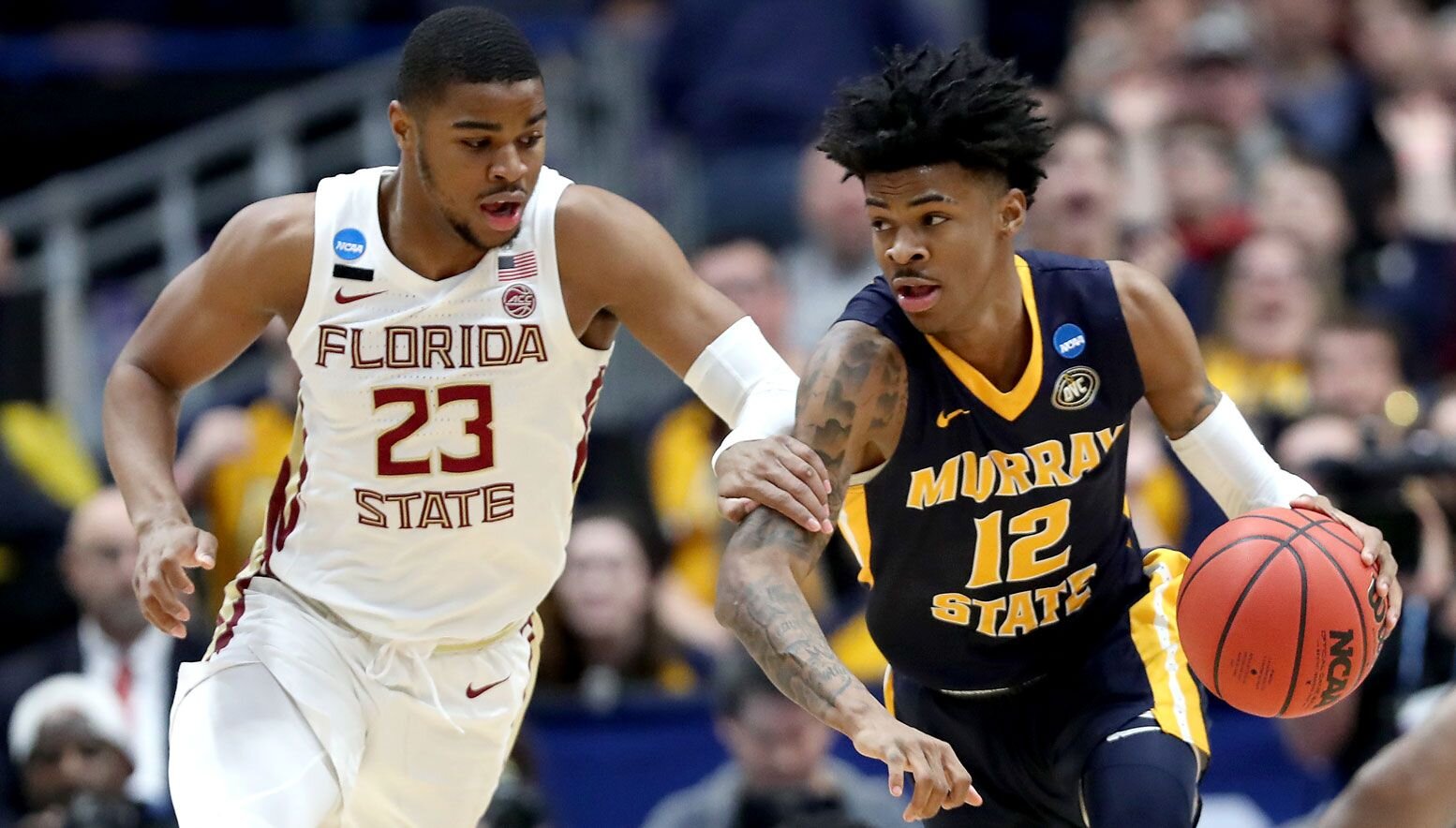
TEAM Mentor Program: What advice do have about creating goals and achieving them?
Morant: I start off with short-term goals first that will eventually lead me to my long-term goals. I would say my goals when I was younger was to definitely make it to the NBA. That was my long-term goal. But I had to start with obviously having good grades to get accepted into a school. I had to show schools that I could play on that level to get scholarship offers. And once I did that, it kind of led me towards where I wanted to go. I had to keep working until I was there, and I always told myself there’s always room for improvement no matter what I did on the court or off the court. My goal now is to try to be one of the top players in the NBA and to lead my team to playoff wins and maybe a championship.
TEAM Mentor Program: What age were you when you figured out mentors were effective?
Morant: Probably around 7th or 8th grade. I was playing travel ball then, and there were a lot of rankings out that I wasn’t a part of. I was obviously frustrated about that and I did talk to my parents about that. But having that mentor there at school was a plus to talk to when your parents aren’t around. So in those times, I would go to my guidance counselor and sit down and just have a talk. Sometimes you would get overwhelmed or frustrated at school, so to have them there for that was really a plus.
TEAM Mentor Program: How’s everything going right now? How are you handling everything that’s going on and not being able to play basketball?
Morant: It’s going good, being able to spend time with my family. We travel a lot during the NBA season, so I’m taking this time to spend time with them as much as I can. I do want to play right now. But I feel like everything that’s going on right now is to protect everybody as long as we stay at home and sort of stay away from each other at a safe distance. I can say I’m doing good, but I definitely want to be out there on the court.
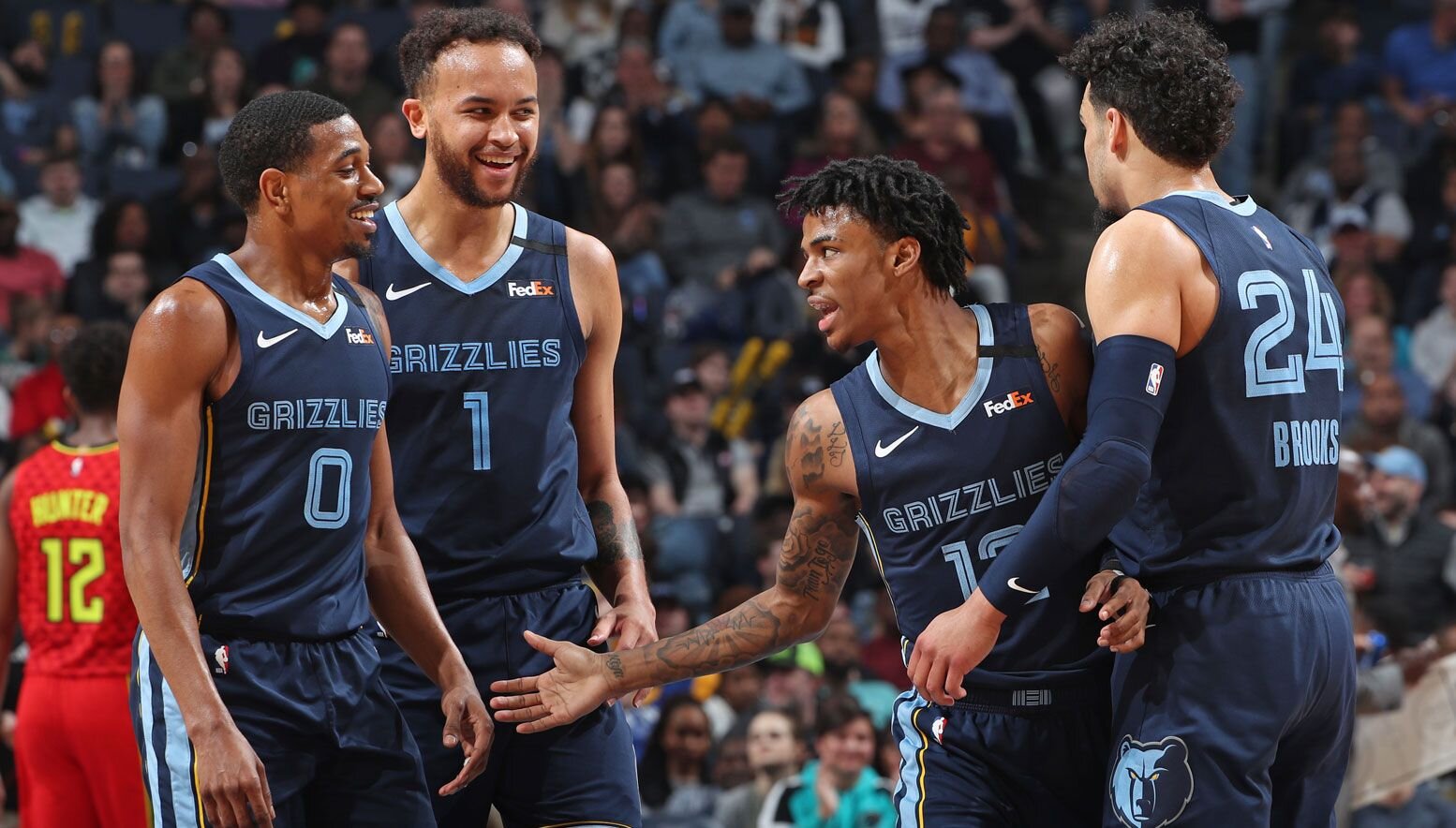
TEAM Mentor Program: How did you establish your work ethic, and how is it paying off now?
Morant: There’s a saying my family uses. It’s, ‘No days off.’ So you don’t take any days off. I remember me and friends were playing a (video) game all night and my dad came home from work early. He told us while we’re playing the (video) game, somebody else is playing the (real) game. And he said, ‘Do you all know what that means?’ And we were like, ‘No.’ So he was like, ‘When I get home from work, I need you all to know.’ And when he came home, we were still playing the game. And he was like, ‘While we’re playing the video game, somebody is out there playing basketball working on their game.’ And after that, there was pretty much no video games anymore. We would be out there all day, and there were times my parents would have to call us in to come eat. Any chance we got to work on our games, we would.
TEAM Mentor Program: If you weren’t a NBA player, what else would you be doing in life?
Morant: That’s a tough question, but when I was younger my dad taught me how to cut hair. So I would be a barber or a coach somewhere. I used to draw a lot when I was younger, so I would probably be an artist. It’s a tough question because I’m here now and I’m used to the lifestyle I’m living right now. But at the same time, I’m still in college right now and finishing school, because my dad told me one day the basketball would stop bouncing and I need something to fall back on. My goal now is to finish school and graduate so I can have something to do with my degree after I finish playing.
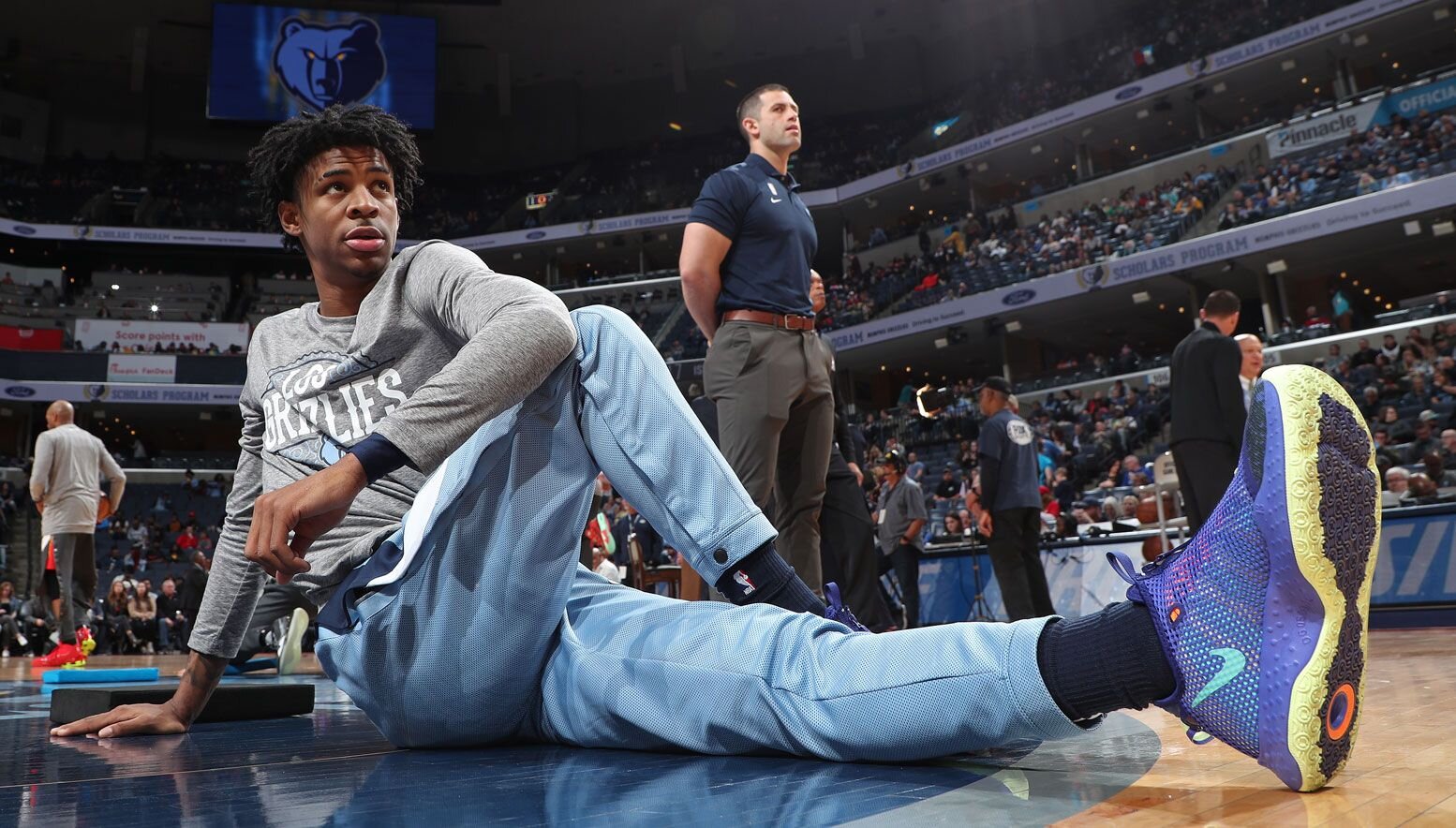
TEAM Mentor Program: Can you stress how important mentoring is, especially right now as so many young people cope with what’s going on in the world?
Morant: I’m definitely with (supporting) mentors and what they do. It’s about doing whatever it takes to put a smile on a kid’s face, help them out and be a good role model. I’ll be here for whatever we can plan. Just prayers out to everybody, and we’re hoping everybody stays safe during this tough time we’ve got going on. Just keep God first and keep pushing toward whatever your goal is and whatever you want to do in life. And to the mentees, everything you’ve heard is very important. Having that mentor is definitely a plus to have someone you can talk to, so don’t take that for granted. Be thankful and keep growing.
The contents of this page have not been reviewed or endorsed by the Memphis Grizzlies. All opinions expressed by Michael Wallace are solely his own and do not reflect the opinions of the Memphis Grizzlies or its Basketball Operations staff, owners, parent companies, partners or sponsors. His sources are not known to the Memphis Grizzlies and he has no special access to information beyond the access and privileges that go along with being an NBA accredited member of the media.
